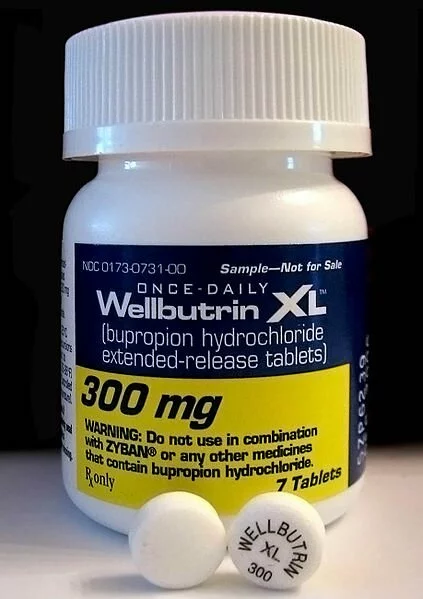
Erectile Dysfunction drugs such as Viagra, Cialis, and Levitra have made huge strides in treating male sexual dysfunction — but have women been left behind? At this writing (September 2009), no treatment has been approved by the FDA for Female Sexual Dysfunctions (FSD), which are estimated by the Journal of the American Medical Association to affect 43% of American women (about 40 million) at some point in their lives.
It’s not for lack of trying. Pharmaceutical makers would love to tap into a market that’s the other 50% of the population. They are assertively researching the problem. So why has a result not come forward?
One issue is that, with men, “sexual dysfunction,†no matter whether the cause is mental or physical, is likely to respond as a pretty straightforward plumbing problem: Viagra and its counterparts, the Phosphodiesterase Type 5 Inhibitors, are vasodilators, meaning that they open up blood flow to the area, allowing an erection to be achieved and retained more easily. (More information on the effects of these vasodilators on women is below.)
But women’s sexuality is more complex and less understood, often caused by a range of physical, emotional, and psychological conditions. Simple manipulation of bloodflow only goes so far. Another element is that women have unique hormone issues, which often cause low libido, as they age. Finally, some researchers are experimenting with methods that place sexuality in the mind.
The good news is that research IS progressing. Here’s an update on where the various methods are:
THE BIG THREE (Viagra, Cialis, Levitra)
Researchers are looking into using male ED drugs on women suffering from FSD. In April of this year, a study by the American Physiological Society was described that compared the effects of three drugs used for erectile dysfunction (Viagra (sildenafil), Levitra (vardenafil), and Cialis (tadalafil)) on female rats. The researchers discovered that these drugs significantly increased blood flow to female sexual organs, and show promise for treating similar conditions in human women. Another study has shown that Viagra can help with orgasms in women who are taking SSRIs and suffering sexual dysfunction as a side effect.
There is promise here, but it is all forward-looking. The FDA has not approved these medications for use by women. We will be closely following the progress of this research.
HORMONAL TREATMENTS
The hormone testosterone drives sexual desire, and as women age, they typically lose some of both. There are some doctors that prescribe testosterone off-label to women to help with low desire, but this process is not approved by the FDA. There have been flops along the way to a hormonal treatment. Intrinsa, a testosterone patch for women, was turned down by the FDA in 2004 due to worries about long-term safety, and PT-141 was a nasal spray that was being tested to raise desire in both men and women when it was quashed by the FDA for having possible blood-pressure-related side effects.
In upcoming news, though, BioSante Pharmaceuticals of Illinois is in late-stage studies of a testosterone gel intended to remedy libido loss after menopause. The product, called LibiGel, is smeared on the upper arm and promotes a long, slow build-up of testosterone in women. We’ll be eagerly watching to see if LibiGel is approved by the FDA.
NEUROTRANSMITTER ADJUSTMENTS
A nonhormonal treatment for FSD is in late-stage testing. Boehringer Ingelheim’s Flibanserin, a pill to be taken daily, acts on serotonin receptors in the brain. Early reports suggest that the medication was not useful for treating depression (its intended use), but had the curious side effect of increasing desire in females. The company is now researching the drug’s effects directly in younger, premenopausal women who are suffering from low desire.
The reality is that there is no approved pharmaceutical treatment on the market for a condition that troubles millions of women. The good news is that there are a few promising treatments on the horizon, and we encourage women to follow issues like this in the news so that they will know when relief becomes available. Some of the companies mentioned in this article are conducting clinical trials of these medications, so if you are deeply interested and want to participate, that is a possibility, too. We should see some major changes in the field in the next few years.
 Major depressive disorder affects approximately 15 million American adults in the U.S. in a given year, and a first pharmacological line of defense is often a prescription for an SSRI such as Prozac, Celexa, or Zoloft. (These drugs have been favored since the late 1980s for the treatment of depression as they are generally well tolerated, have fewer side effects than their predecessors the MAOIs, and help a great many people.)
Major depressive disorder affects approximately 15 million American adults in the U.S. in a given year, and a first pharmacological line of defense is often a prescription for an SSRI such as Prozac, Celexa, or Zoloft. (These drugs have been favored since the late 1980s for the treatment of depression as they are generally well tolerated, have fewer side effects than their predecessors the MAOIs, and help a great many people.)
However, people suffering from atypical depression — characterized by hunger and sleepiness, rather than loss of appetite and insomnia — may have different needs in an antidepressant and should discuss with their doctor options such as Bupropion (familiarly known by its GlaxoSmithKline trade name, Wellbutrin), which could help where popular SSRIs might fail.
That is because SSRIs — Selective Serotonin Reuptake Inhibitors — work on the neurotransmitter Serotonin, while Wellbutrin — an NDRI — is a Norepinephrine and Dopamine Reuptake Inhibitor. This change of focus in the affected neurotransmitter may make all the difference for those individuals who suffer depression in an atypical manner.
Atypical depression differs from regular, “melancholic†depression primarily in energy and appetite. It is often characterized by “reversed vegetative symptoms†such as over-eating (regular depressives have little appetite) and/or over-sleeping (regular depression is usually characterized by sleeplessness).It is estimated that up to 40% of people suffering from depression have atypical symptoms.
Wellbutrin reportedly has a more enlivening affect than the SSRIs, so it is often considered for those who are sleeping abnormally long amounts. (For this reason, it is not advised for those suffering anxiety or agitation.) It is also one of the only antidepressants that is not associated with weight gain, and for this reason is also suitable for atypical depressives who may be overeating.
Even successful users of SSRIs have reason to consider Wellbutrin. SSRIs have widely-known sexual side effects that trouble some patients, even if the SSRI is curing their depression. This may make them turn to their physician for refinement of the prescription. Says Ray Sahelian, M.D.:
Since bupropion raises dopamine levels, it actually can enhance sexuality rather than depress libido as do many SSRIs. Bupropion has been shown to have a favorable effect on sexual dysfunction. Several reports and small, short-term trials have examined bupropion as an adjunct or substitute for other antidepressants in sexually dysfunctional patients. This means that Wellbutrin is often prescribed for sufferers of atypical depression, but it is also prescribed as an add-on for people using SSRIs who would like to try to combat the sexual side effects of SSRIs.
In other words, Wellbutrin is often prescribed as an add-on to an SSRI for the express purpose of relieving some of the SSRI’s sexual side effects (usually loss of libido or functioning).
Depression is not the only condition that Bupropion has been approved to treat. In 1997, it was approved by the FDA as a smoking cessation aid under the name Zyban. And in 2006, Wellbutrin XL was approved as a treatment for Seasonal Affective Disorder. Because both Wellbutrin (prescribed for depression) and Zyban (prescribed for smoking cessation) are essentially Bupropion, patients should not take both at the same time; they would be doubling their dose.
Caution: The most well-known side effect of Bupropion is that it lowers seizure thresholds. Doctors have worked around this with lower dosages (it is highly dose-dependent) and controlled-release formulations. Still, those with seizure disorders should avoid Bupropion. Other common side effects are nervousness/ agitation and insomnia. As with any antidepressant, people suffering from increased depressive symptoms or thoughts of suicide should contact their doctor immediately.
Some formulations of Bupropion are available as generics in the United States and Canada.
U.S. Brand Names
- Budeprion SR®
- Budeprion XL®
- Buprobanâ„¢
- Wellbutrin SR®
- Wellbutrin XL®
- Wellbutrin®
- Zyban®
Canadian Brand Names
- Novo-Bupropion SR
- PMS-Bupropion SR
- RATIO-Bupropion SR
- SANDOZ-Bupropion SR
- Wellbutrin XL®
- Wellbutrin®
- Zyban®
-
-

-
How to Safely Buy Prescription Drugs Online from Cary Byrd on Vimeo.
-
Search Blog Posts
-
Trending Content
-
Blogroll
- Bullet Wisdom
- Christian Social Network
- DrugWonks.com
- Eye on FDA
- GoozNews
- Health 2.0
- In the Pipeline
- Jesus Christ Our King
- Kevin, M.D.
- Pharm Aid
- Pharma Marketing
- PharmaGossip
- Pharmalot
- San Antonio Asphalt
- San Antonio Life Insurance
- San Antonio Pressure Washing
- The Angry Pharmacist
- The Health Care Blog
- The Peter Rost Blog
- World Vision
-
Tags
big pharma Canadian drugs canadian pharmacies canadian pharmacy consumer reports craig newmark divine healing Drug costs drug prices Drug reimportation eDrugSearch.com FDA Fosamax Generic drugs healing scriptures Health 2.0 healthcare reform Hypertension Jehova Rophe Jesus Christ Lipitor Metformin miracles nabp online pharmacy dictionary online prescriptions osteoporosis peter rost Pharmacies pharmacists pharmacychecker pharmacy spam phrma Prescription drug coupons Prescription drugs prescription medication Proverbs 3:5-8 reimportation relenza Roche saving money swine flu Tamiflu The Great Physician The Lord our Healer -
Archives
- July 2013 (10)
- June 2013 (8)
- May 2013 (8)
- April 2013 (8)
- March 2013 (10)
- February 2013 (14)
- January 2013 (6)
- August 2012 (2)
- July 2012 (1)
- June 2012 (1)
- April 2012 (6)
- March 2012 (3)
- February 2012 (1)
- January 2012 (2)
- November 2011 (2)
- June 2011 (2)
- August 2010 (1)
- July 2010 (2)
- June 2010 (2)
- May 2010 (3)
- April 2010 (4)
- March 2010 (5)
- February 2010 (4)
- January 2010 (1)
- November 2009 (2)
- October 2009 (6)
- September 2009 (7)
- August 2009 (11)
- July 2009 (12)
- June 2009 (18)
- May 2009 (14)
- April 2009 (10)
- March 2009 (13)
- February 2009 (10)
- January 2009 (10)
- December 2008 (24)
- November 2008 (22)
- October 2008 (27)
- September 2008 (28)
- August 2008 (23)
- July 2008 (30)
- June 2008 (32)
- May 2008 (29)
- April 2008 (27)
- March 2008 (19)
- February 2008 (26)
- January 2008 (35)
- December 2007 (23)
- November 2007 (26)
- October 2007 (36)
- September 2007 (25)
- August 2007 (33)
- July 2007 (36)
- June 2007 (31)
- May 2007 (32)
- April 2007 (22)
- March 2007 (22)
- February 2007 (29)
- January 2007 (18)
- December 2006 (56)
- November 2006 (16)
-
Recent Comments
- Sophie on Reclast’s “jaw problems” caused by too many warnings, spoken too quickly?
- Marcy on How to Get Coupons on Prescription Drugs
- Cary Byrd on Maine Becomes First State to Allow Prescription Drug Importation from Licensed Mail-Order Pharmacies
- brenda eppinette on Maine Becomes First State to Allow Prescription Drug Importation from Licensed Mail-Order Pharmacies
- Ranee on What is the Difference Between Effexor and Cymbalta?
